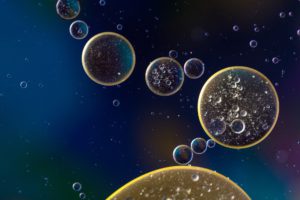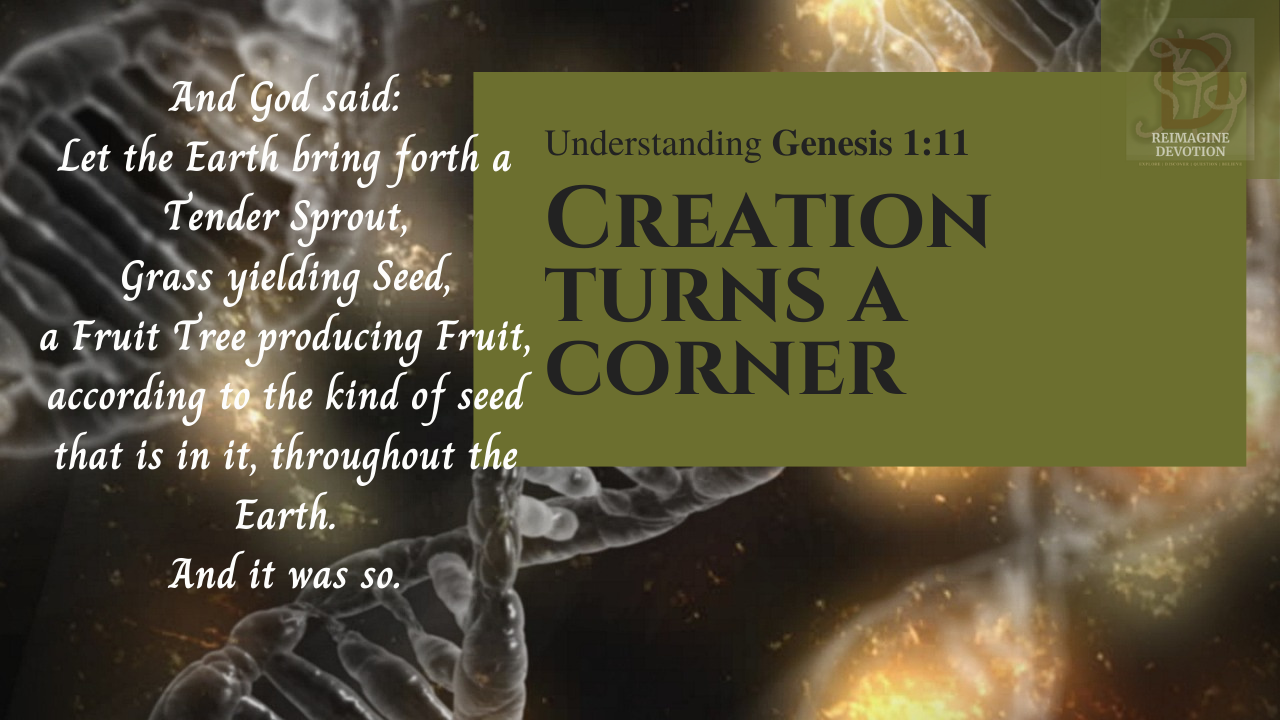Genesis 1:11, the second part of Day 3, marks a critical turning point in creation. Here creation makes a great leap which science alone has difficulty explaining, from inanimate to animate objects. The jump from simple chemical reactions, to life.
Creation and Evolution
Evolution is the scientific explanation for how complex life forms develop over time from more simplex lifeforms. It is—as of today—the best way we have  to make sense of all the facts.
to make sense of all the facts.
However, there are holes – which most evolutionary scientists will indeed admit, as their own jobs are to fill and make sense of those holes. One of the holes has to do with this jump from chemical compound to living cell.
How did that happen?
What is it, exactly, that animates the inanimate?
Can science alone explain it, somehow?
Obviously, many people believe that science can explain it, apart from any creator or any supernatural intervention. They are welcome to their opinion.
Others find the leap just a little too far to attempt. We are also welcome to our opinion. And yes, most of us are religious.
The world often accuses us religious people of naivety, of closemindedness, of using God as an excuse to ignore the facts or ask hard questions. And sometimes, yes, these accusations are fair.
In this particular case, however, we are the ones who do question, who refused to “just go along with it,” and who demand to see beyond the simplistic and the naïve.
We who believe Life has a source beyond science are, in this case, the ones open to other possibilities, asking, “what if,” and “maybe.”
So, what if…
What if there is a God?
What if God meets us here, within the gaps of human knowledge, and within our certainties?
And what if the supernatural isn’t really supernatural at all, but just nature in its purest form?
At some point in our lives, we all find ourselves struck by the miracle of life. We use the word “miracle” even when we do not believe in the supernatural, because no other word describes the intensity of our wonder. Every cell in our bodies is infinitely more complex than the stars.
Is it really naïve to see divinity in these marvels? Is it actually unscientific to pause before leaping over the gaps?

Where do you see the gaps, the places in your own life, or the world, that just do not quite add up without God? It is when coincidences and gaps begin to pile up that we pause, and rethink: Might there be more to this than what we can explain? Is it possible? What do you think about the origin of life? Is this a gap through which we might see God?
Missed the last verse? Catch up with Understanding Genesis 1:10.
or
Understanding Genesis 1:12 coming next week!
